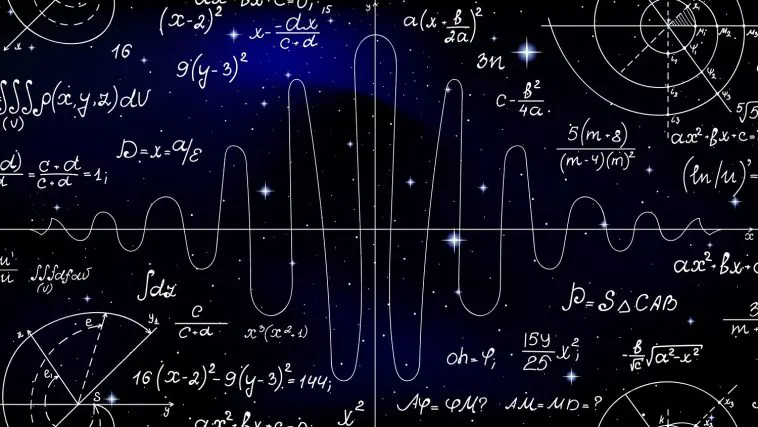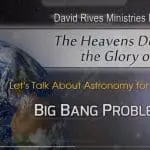[Originally published as the first part of TCQ Week 1: Introduction: Should Christians Care About Science?]
Creation. Science. God’s world. Many people have weaponized God’s world in an attempt to show that, in fact, God’s word is not true. Atheists claim that evolution is “settled science” and that inserting God into the “gaps” of our knowledge is pretentious.
If we don’t know something, they say, we should just admit we don’t know. The history of science is full of asking new questions, finding new answers, and coming to new conclusions. This happened with lightning and supposedly evolution, so why shouldn’t we think the rest of our big questions won’t get answered, too?
- What is the origin of life?
- How did consciousness arise from non-conscious materials?
- What caused the Big Bang?
Mainstream scientists readily admit we have no answers for those questions, but is that truly a cause for concern? Science has “proven the Bible wrong” so many times before, why think it won’t continue?
In this series, we’re going to dig into these questions and more. We’ll explore why science can’t answer some of these questions at all. We’ll see whether we’re just shoving God into the gaps of our knowledge, or whether we’ve come to a reasonable conclusion about God being the creator.
A Few Disclaimers
Before moving on, there are a few things I should point out about myself and the approach we’re taking in this series.
I am not a scientist.
By no means do I claim to be a scientist or have any scientific credentials. However, everything we discuss (while sometimes venturing outside the narratives of mainstream science) will be based on the work of legitimate, credentialed scientists in their respective fields. I am friends with many of them, so if something comes up within our exploration that needs clarification from a subject matter expert, I will get that information for you.
I’m a (nice) Young Earth Creationist, but that’s not specifically our focus.
You should know that I am a Young Earth/Age Creationist. That means I believe the Bible teaches the earth and universe are on the order of 6-7,000 years old, not the billions of years old virtually all mainstream scientists assume today.
If this is something you’re interested in, we’re going to be taking the hardest look at the age of creation in Week 4: “Scripture as an Ancient Text.” We’ll be discussing how “literally” we should take the Bible, whether or not it can even speak to the age of the earth, and why/how I think it does.
I don’t plan to take a negative approach, but rather a positive one.
This is not an “anti-evolution” class. I’ve titled the class with the question, “Does science prove the Bible wrong?” The short answer is: NO! Of course not.
The longer answer is what we’re going to arrive at during this class. But we will not be spending time refuting what mainstream scientists believe. Instead, we’ll take a positive approach and show how only by beginning with God’s Word can we make sense of God’s world.
We should treat this series (and science itself!) like an adventure.
I’m concerned that many people treat science in a way that most scientists don’t. Christians (and many hardened atheists) especially tend to treat science like it’s this binary calculus: It either proves God, or it doesn’t. But that’s not true.
Ironically, science is much more art than science! Especially historical science which often involves an investigation into the past, like so much of what we’ll be discussing here.
This is a journey. An adventure. To see how cool God’s world truly is, and how it confirms God’s Word in so many cool ways.
It might start a little slow. Please hang in there.
Particularly this week and next may feel a little bit slower. By week three, we’re really going to be moving. But please stay with me. This week and next include some of the most important subject matter we’re going to discuss because, without them, none of the rest makes sense or even matters.
Working through these topics will lay the foundation for everything coming up. We need to discuss why and whether science even matters at all. Does the Bible have anything to say about the pursuit of the natural world?
I think it does, in some potentially surprising ways.
The Dominion Mandate
Genesis 1:27–28 says,
So God created man in his own image, in the image of God created he him; male and female created he them. And God blessed them, and God said unto them, Be fruitful, and multiply, and replenish the earth, and subdue it: and have dominion over the fish of the sea, and over the fowl of the air, and over every living thing that moveth upon the earth.
Bible nerds refer to this as “The Dominion Mandate” (DM). This is God’s prime directive for humanity. Our job is to be fruitful and have dominion over the earth. Work is not a bad thing! We were tasked with caring for the beautiful creation that God made and called “very good.” But something bad happened. The world went awry.
In Genesis 6–8, the Great Flood was sent to destroy all life and flesh that moved upon the earth. But the flood was not primarily an end; it was a beginning. We know this because immediately after the flood waters began to dry up and Noah was welcomed back onto dry ground, God reaffirmed his commitment to humanity’s purpose:
And God blessed Noah and his sons, and said unto them, Be fruitful, and multiply, and replenish the earth. And the fear of you and the dread of you shall be upon every beast of the earth, and upon every fowl of the air, upon all that moveth upon the earth, and upon all the fishes of the sea; into your hand are they delivered. (Genesis 9:1–2)
Scholars are divided as to the nature of the DM. Some use this to claim that the original world was not “perfect” — there was death, suffering, and disease as part of the created order. To be clear, neither do I think it was “perfect” because the Bible does not use a word that means “perfect.” It uses the biblical construction tov meod, meaning “very good.” A very good world is the kind of world that does what God intended for it to do.
By assessing the character of God, we can arrive at a reasonable conclusion of what that original world was like. While I don’t think it was perfect, I believe it was the kind of world a good and loving creator would have made. So, why do some take the DM to mean that the creation was hostile and needed to be “subdued”?
It comes down to the meaning of the word dominion, Hebrew radah. The word means “to lead, to rule” and is often used in very militaristic contexts within Scripture. However, one simple verse serves to refute the notion that this word is always militaristic:
Thou shalt not rule over him with rigour; but shalt fear thy God. (Leviticus 25:43)
The context is that of Israelite slave labor post-Exodus and it uses the word radah— “rule.” This verse teaches that it is possible to have a peaceful rule. Radah is not limited to killing or forcibly enacting physical submission.
A further example is 1 Kings 4:24-25 where it describes the peaceful rule/dominion (radah) of Solomon:
For he had dominion over all the region on this side the river, from Tiphsah even to Azzah, over all the kings on this side the river: and he had peace on all sides round about him. And Judah and Israel dwelt safely, every man under his vine and under his fig tree, from Dan even to Beer-sheba, all the days of Solomon.
Therefore, I believe the best way to make sense of the “dominion” concept is by saying to “care for it.” God has placed the care of this physical world in the hands of humanity. It is our responsibility to care for creation. To be responsible with it. And, like everything else that is a gift from God, to be a good steward of it.
As I wrote elsewhere:
In order to properly carry out the dominion mandate, we must be able to care for the creation. And in order to care for it, we must know about it, and in order to know about it, we must study it. And the study of the natural world—that’s what we call science. (The Winsome Creationist)
So, should Christians care about science? Absolutely! Science is a wonderful tool, developed by humanity, that allows us to explore God’s world and carry out the DM. Although some weaponize it, the study of science proper is not something Christians ought to shy away from or be scared about.
The scientific method was developed by theists, many of them Christian. The father of the modern scientific method, Sir Francis Bacon, was a Christian. He was a member of the Church of England and held Christian beliefs, which influenced his work and thinking. Bacon saw no conflict between religion and science; in fact, he believed that scientific inquiry was a way to understand God’s creation more deeply. His integration of faith and reason is evident in his writings, where he often spoke about the harmony between the natural world and divine creation.
The so-called modern “conflict thesis” is a now-bunk attempt at showing that science and religion — specifically Christianity — are not compatible. But this is a mistake, one that will become all the more clear as we continue our investigation.
So now we know that science is important. But some seem to take this stuff really far. Can science become too important to us? What if it becomes a distraction that takes away from the main message of Christianity, the love and sacrifice of Jesus for our sin?







